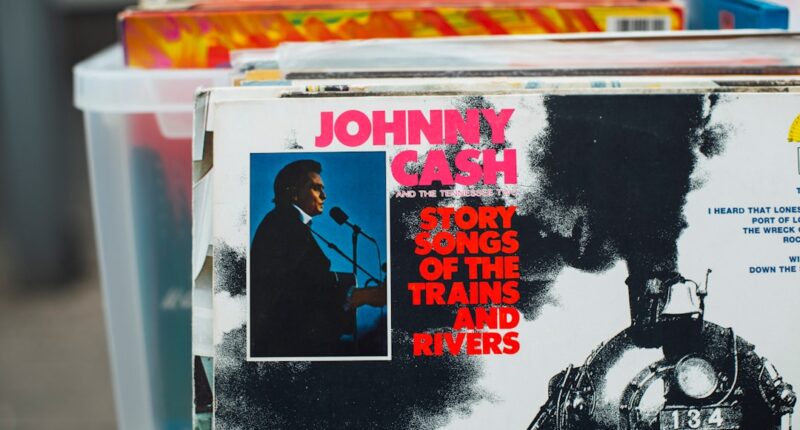Our lives have always been significantly impacted by music, which can evoke strong feelings, set the tone, and produce lifelong memories. Within the realm of commerce & retail, music occupies a unique position as a potent instrument capable of shaping customer attitudes & behavior. Music can affect our mood, improve our shopping experience, and even influence our spending habits, starting from the moment we enter a store or browse an online store. Countless investigations and scholarly works have been carried out to comprehend the impact of music on consumer purchasing behavior. Research has demonstrated that music can affect consumers’ emotions and purchasing behaviors.
Key Takeaways
- Music has a significant impact on shopping behavior, with studies showing that it can influence mood, perception of time, and even purchase decisions.
- The music industry database is a valuable resource for music promotion, providing access to information on artists, songs, and trends.
- Effective music promotion strategies include creating playlists, hosting live events, and partnering with influencers and brands.
- Retail stores can use music marketing techniques such as in-store performances, themed playlists, and social media campaigns to engage customers and drive sales.
- When choosing a soundtrack for their brand, retailers should consider factors such as target audience, brand identity, and legal requirements for music licensing and copyright.
Slower-tempo music, for instance, has been linked to longer store visits, whereas faster-tempo music seems to instill a sense of urgency in consumers and encourage them to make purchases more quickly. Also, music genres can have a big influence on how people behave as consumers. For example, it’s been observed that classical music can evoke a sophisticated, elegant atmosphere, which works especially well in upscale retail environments. Pop music, on the other hand, has been demonstrated to foster a livelier and more positive atmosphere, which is advantageous for retailers who cater to a younger clientele. Music industry databases are now a vital resource for both businesses and musicians in the digital age.
Businesses can find the ideal music for their promotional campaigns more easily thanks to these databases, which offer an extensive selection of music tracks, artist information, & licensing details. Well-known Music Industry Databases like SoundCloud, Bandcamp, and Spotify for Artists provide a plethora of features that enable musicians to market their music & establish connections with their intended audience. There exist multiple strategies that can be implemented in a retail setting to enhance customer engagement and sales when it comes to music promotion.
Organizing live music events or in-store performances is a successful tactic. This gives consumers an exceptional and unforgettable shopping experience while simultaneously giving up-and-coming musicians a stage on which to perform and receive recognition. Social media marketing is another well-liked technique for promoting music. Businesses have the chance to interact more personally with their customers & reach a larger audience by using platforms such as Facebook, Instagram, and TikTok. Businesses may successfully promote their music and increase sales by producing interesting content, releasing behind-the-scenes videos, and working with influencers. There are various music marketing strategies that can be used in retail settings in addition to live events and social media promotion.
| Metrics | Data |
|---|---|
| Number of shoppers who listen to music while shopping | 75% |
| Percentage of shoppers who stay longer in a store with music | 40% |
| Percentage of shoppers who make impulse purchases due to music | 30% |
| Percentage of shoppers who prefer pop music while shopping | 45% |
| Percentage of shoppers who prefer classical music while shopping | 20% |
| Percentage of shoppers who prefer no music while shopping | 10% |
Making playlists with brand names is one such method. Retailers can provide their customers with a distinctive and engaging shopping experience by selecting music that complements their brand image & core beliefs. This strengthens the store’s overall atmosphere and contributes to building a recognizable brand.
Also, one efficient way to promote music is through the use of music in advertising campaigns. Retailers can make a lasting impression on their target audience by using memorable jingles and catchy tunes in their advertisements. Customer loyalty and brand recognition may both benefit from this.
Making the ideal playlist for your business is a kind of art in and of itself. Your target market, brand identity, and the overall shopping experience you wish to create must all be carefully taken into account. The following advice will assist you in making a playlist that complements your brand & appeals to your target audience:1. Become familiar with your target audience’s demographics and preferences by taking the time to learn about them. As a result, you can select music that makes them feel good and makes their shopping experience enjoyable. 2.
Consider the time of day and season: Different times of the day and seasons call for different types of music. For instance, jovial and lively music might be more appropriate during prime shopping hours, while peaceful and comforting music might be better suited for slower periods. 3. Toss it up: When putting together a playlist, variety is essential. To accommodate a range of tastes and maintain customer engagement, incorporate a variety of genres, tempos, and artists. 4.
Try and improve: Don’t be scared to try out various playlists & get input from your clientele. This will assist you in improving your playlist and making sure that your intended audience finds it appealing. Our feelings and behaviors are greatly influenced by music.
It can arouse sentiments of contentment, nostalgia, and even calmness. When played in a retail environment, the correct music can make customers feel good and have a great time, which increases customer satisfaction and loyalty. It’s crucial to comprehend the psychology of music in order to fully utilize its influence when shopping. For instance, studies have indicated that listening to music with a slower tempo can promote serenity and relaxation, which is advantageous in establishments where patrons may be trying to decompress.
Conversely, faster-paced music can evoke a sense of urgency and excitement in listeners, leading them to make decisions about purchases more quickly. Selecting the appropriate music for your company is essential to building a strong brand identity and improving the general clientele experience. You can use the following advice to select the ideal soundtrack for your brand:1. Know your brand’s values: Invest some time in learning about the character, values, and target market of your brand. This will assist you in selecting music that is both in line with your brand identity and appealing to your target audience. 2.
Think about the feelings you wish to arouse: Imagine the feelings you wish your clients to experience when they engage with your brand. Select music that makes you feel these things and makes the experience enjoyable & unforgettable. Three. Be dependable: When it comes to brand identity and music, reliability is essential. Use a soundtrack that is in line with the image & core values of your business for all of your touchpoints, including online ads & in-store music. 4.
Consult an expert: If you’re not sure how to select the ideal soundtrack for your brand, think about consulting music consultants or agencies. They can guide you through the complex world of music licensing and make sure the music you select is appropriate for your company. Understanding and abide by copyright and music licensing regulations is crucial if you use music in your business to prevent legal problems.
The process of getting approval from the owner of the copyright to use someone else’s music in your business is known as music licensing. You can do this directly with the owner of the copyright or through licensing organizations. It’s crucial to remember that you need a public performance license to play music in a public place like a store. By granting you this license, you guarantee the artists’ & copyright holders’ compensation for their labor and the ability to publicly perform music protected by copyright. In conclusion, music is very important in business & retail environments.
Brand identity can be strengthened, memorable experiences can be produced, & consumer behavior can be influenced. Through comprehension of the influence of music on consumer behavior, utilization of music industry databases for music marketing, application of efficient music marketing strategies, and selection of the ideal soundtrack for your company, enterprises can leverage the potential of music to propel revenue, elevate client involvement, and establish an enjoyable & unforgettable shopping encounter. Thus, the next time you visit a store or shop online, pay attention to the background music that is playing. You never know when it might be the secret to a really engaging & pleasurable shopping experience.
Looking for some insights on music promotion in the market? Check out this informative article on MusicPromotion.tech titled “Hello World!” It provides valuable tips and strategies to help musicians navigate the competitive music industry and effectively promote their music. Whether you’re an aspiring artist or an established musician looking to expand your reach, this article offers practical advice and guidance. Don’t miss out on this opportunity to enhance your music promotion skills! Read more
FAQs
What is music at the market?
Music at the market refers to the practice of having live music performances at local markets, where vendors sell fresh produce, crafts, and other goods.
Why is music played at markets?
Music is played at markets to create a lively and festive atmosphere, attract more customers, and enhance the overall shopping experience.
What types of music are played at markets?
The types of music played at markets vary depending on the location and the preferences of the organizers. It can range from traditional folk music to contemporary pop and rock.
Who performs the music at markets?
The performers at markets can be local musicians, bands, or even street performers who are hired by the market organizers.
When are music performances held at markets?
Music performances at markets are usually held on weekends or during special events, such as holidays or festivals.
Are there any benefits to having music at markets?
Yes, having music at markets can attract more customers, increase sales for vendors, and create a sense of community and social interaction among shoppers. It can also provide a platform for local musicians to showcase their talent and gain exposure.





